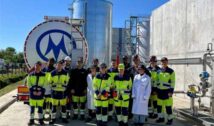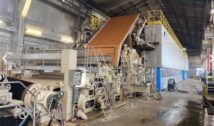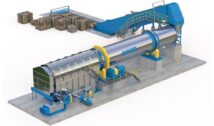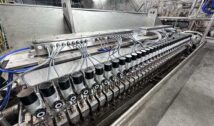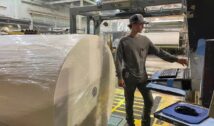
The paper manufacturing Group, alongside Science Based Targets (SBTi), is embarking on the pathway to reducing greenhouse gas emissions to as close to zero as possible along the entire value chain.
Sofidel, one of the leading manufacturers of paper for hygienic and domestic use worldwide, best known for its Regina brand, is intensifying its ecological transition policies and – after the achievements of the WWF Climate Savers program and the endorsement of decarbonization targets to 2030 by Science Based Targets (SBTi) – is committing to Net Zero by 2050.
The Net Zero goal, i.e. reduction of greenhouse gas emissions and the subsequent removal of residual emissions to as close to zero as possible along the entire value chain, is at the heart of the European Green Deal and considered crucial to limiting global warming to well below 2°C in line with the Paris Agreement.
Sofidel will undertake this journey together with SBTi – the partnership between Carbon Disclosure Project (CDP), the United Nations Global Compact, the World Resources Institute (WRI), and the World Wide Fund for Nature (WWF) – that promotes sustainability best practices and helps companies to pursue greenhouse gas reduction goals in line with science.
“Sofidel is still accelerating its decarbonization journey. Net Zero is a commitment to our Planet, a fundamental goal for a company like ours engaged in a highly energy-intensive industry. It is not an easy challenge, but it is a necessary one, following on from and consistent with the huge amount of work we have already done,” said Riccardo Balducci, Group Sustainability Director at Sofidel.
For Sofidel, Net Zero represents the next step in a journey to reduce greenhouse gas emissions that goes back a long way. In 2008, it became the first Italian manufacturing company and the first company in the tissue sector in the world to join the international WWF Climate Savers programme, committing to ambitious voluntary greenhouse gas emissions reduction targets. From 2009 to 2020, Sofidel reduced direct CO₂
emissions (carbon intensity) into the atmosphere by 24%.
The Group’s aim by 2030 is a further 40% reduction in scope 1 and scope 2 CO2 emissions compared to the 2018 base year, and a 24% reduction in scope 3 emissions. This goal was also approved by SBTi. The strategy to achieve a highly challenging and time-consuming goal is based on a multifaceted plan, which looks not only at the industrial activities directly managed by Sofidel, but also at the involvement of stakeholders throughout the supply chain, as well as relying on the gradual maturation of technological options that to date are unaffordable.
The key actions in Sofidel’s decarbonization plan up to 2050 will cover:
- The introduction of technologies and solutions capable of further increasing the energy efficiency of the Group’s plants and, in the future, leading to the electrification of production processes which are today powered by fossil fuels
- The increase in the share of electricity self-generated from renewable sources or purchased under long-term power purchase agreements (PPAs) from newly built facilities
- The increasing use of fuels of organic origin, from local supply chains, waste from other processes, and from sources managed using environmental sustainability criteria. These fuels include: solid biomass, biomethane, and bio-syngas
- The use of green hydrogen, in collaboration with technology partners and public agencies. In the United Kingdom, Sofidel UK has already obtained major subsidies to introduce this fuel into its plants
- Sustainable forest management, with a goal to eliminate all deforestation along Sofidel’s supply chain. In fact, forests play an important role in regulating the climate, as well as being a key ecosystem for preserving a lot of biodiversity
- The manufacture and market presentation of products with reduced packaging or packaged using renewable, low-carbon materials. This action is in line with Sofidel’s longstanding commitment to halving the use of conventional plastic in its production, in favor, in particular, of the use of paper packaging
- The selection and use of more efficient means of transportation, in the future powered by: plant-based fuels, hydrogen, e-fuels, or electricity
- The use of technologies to remove residual carbon emissions, either through carbon capture and storage (CCS) techniques or biological storage with afforestation or reforestation projects


